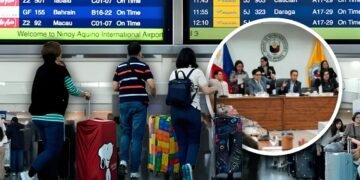PGMN Anchor Hazel Calawod has released a special report highlighting the growing mental health crisis among Overseas Filipino Workers (OFWs).
In the episode, She cited research showing that OFWs are three times more likely to experience clinical depression than non-migrants, with many suffering in silence due to social and cultural pressures.
Watch the full episode here:
The report revealed that 40 percent of Filipino workers in Kuwait experience major depression or acute stress, while Filipino migrants in the United States show higher levels of psychological distress than the general population.
Among Filipino seafarers, mental health diagnoses increased from 23 in 2018 to 64 in 2022, and suicide cases rose from one to nine during the same period.
Hazel pointed out that factors such as isolation, discrimination, financial pressure, and long working hours contribute to worsening mental health conditions.
She also noted that cultural values like tiis, hiya, and utang na loob often discourage OFWs from seeking professional help.
According to the report, the Philippines spends only 0.22 percent of its total health budget on mental health, making access to psychological care limited.
Studies of domestic workers in Hong Kong show that more than 20 percent have experienced physical abuse and one-third verbal abuse, both associated with higher rates of depression.
In the United States, over 40 percent of Filipino labor migrants report facing discrimination.
The episode also discussed ongoing efforts to support OFWs’ mental well-being.
The UAE’s Federal Decree-Law No. 9 of 2022 provides domestic workers with mandatory rest days, humane working conditions, and the right to keep personal documents.
In June 2025, the Philippine Department of Migrant Workers and the Department of Social Welfare and Development launched the “OFW Serbisyo Caravan” in Hong Kong, providing on-site counseling and psychosocial services to over 200,000 Filipino workers.
Hazel concluded that while OFWs continue to be recognized as economic heroes, their struggles reveal an urgent need for systems that protect not just their labor — but their humanity.
She emphasized that the nation must begin measuring success not only by remittance figures but by the mental health and well-being of those who keep the economy alive abroad.












